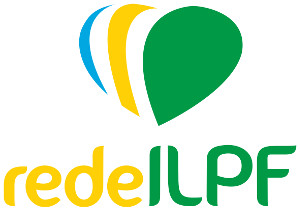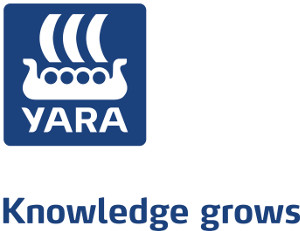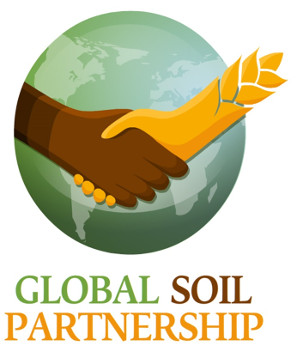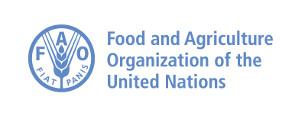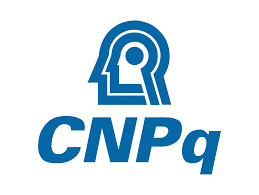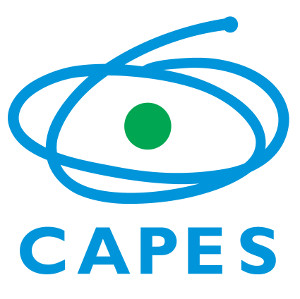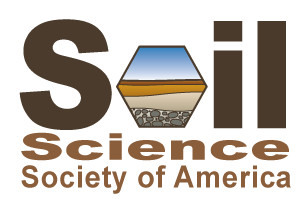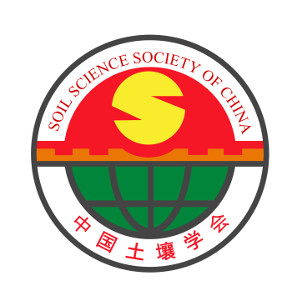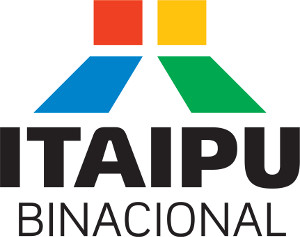Abstracts topics
C3.1 - Soil evaluation and land use planning
C3.1.1 - Recent advances in terroir zoning, functioning and sustainability
To face research advances with innovations about the following key issues: geospatial technologies (remote and proximal sensing, morphometry, geodatabases, spatial statistics) and precision viticulture, water management and soil conservation, mineral nutrition and wine quality, foot-printing and traceability, soil microbiology (rhizospheric and endophytic communities, metagenomics) and organic farming.
C3.1.2 - Multi-scale and multi-domain approaches to develop smart farming
To design best and available for concrete region, landscape and farm conditions agrotechnologies and farming systems, we should identify and analyse key limiting soil agroecological functions that determine crop current state and biological yield, farming and designed technology profitability. The objectives of the session are to discuss (1) how to identify and analyse the key limiting soil agroecological functions, (2) how to optimize their current and predicted state with minimum probability of unacceptable environmental and economic risks, and (3) how to transfer soil quality, function and processes assessments between concrete field, farm and region scales.
C3.2 - Soil and Water Conservation
C3.2.1 - Managing and remediating floodplain and wetland soils
This sessions aims to understand how human impact, in terms of management and remediation, influences soil physical, chemical and biological processes in floodplain and wetland environments, both in inland settings and the coastal zone.
C3.2.2 - Soil management in organic production and agroecology
There is a growing interest in organic production all over the world. The main attractive of organic production is the decrease in food contamination with agrochemicals associated with plant protection, which can also potentially affect soil microbiota and soil health. The restrictions for use of chemical fertilizers in organic agriculture is a matter of debate; on the one hand, there are the questions of soil contamination with heavy metals and water contamination with nitrates and phosphates; on the other hand, most grain crop agriculture may not be sustainable without chemical fertilizers because of the large extraction and export of nutrients. High level discussions, based on science and evidences of both organic and conventional agriculture are welcome.
C3.2.3 - Artificial drainage systems: maintaining soil functions and protecting water resources
The objectives of the proposed session are to (i) identify critical flow and transport processes at drained field sites and to (ii) discuss how and to what extent drainage systems must be considered in catchment modelling of nutrient and contaminant fluxes.
C3.2.4 - Nutrient and contaminant transport in drained soils
The objectives of the proposed session are to (i) identify critical flow and transport processes at drained soils and to (ii) discuss how flux and transport anomalies in soils are related to the mineralization of the organic matter.
C3.2.5 - Soil erosion modelling: Global Alliance
Soil erosion is one of the critical aspects affecting soil protection all over the world. Whereas soil erosion problems and control is quite site specific, understanding the global impact of soil erosion depends on the consolidated knowledge of key factors which should be addressed with proper modelling.
C3.2.6 - Agricultural management to protect soil resource to support a growing population
The growing demand for agricultural products put an enormous pressure on soil resources risking long term soil sustainability. Harmonizing these conflicting elements through well stablished and novel agricultural practices is the focus of this Symposium.
C3.3 - Soils and land use Change
C3.3.1 - Nitrogen use efficiency (NUE) in tropical soils
Nitrogen is a key nutrient for crop production but it is also associated with environmental problems, especially water, but also air contamination. The environmental questions have dominated the agenda of discussions on agricultural nitrogen in temperate climate regions. In the tropical regions nitrogen fertilizer use is not as intensive so far. What we can learn from the temperate soil experience and what are the particularities of tropical soils regarding NUE is the subject of this Symposium.
C3.3.10 - Beneficial management practices for sustaining soil fertility
Proper management of soil fertility for sustaining soil productivity is a century-old topic and is one that deserves further discussion. What constitutes beneficial management techniques for sustaining soil fertility will depend on the soil type, the crop grown, the climatic condition and so on. We need to learn from each other with examples from different regions and countries. Share experience in beneficial management techniques for improving soil fertility across the globe.
C3.3.11 - Biochar for soil fertility management
biochar is the subject of many investigations recently because of the potential of this material to positively affect soil CEC, water and nutrient holding capacity, soil microbiota and greenhouse gases emissions. Feedstock for biochar and production techniques interferes with biochar properties. In addition, the economic feasibility of biochar use and the large amounts needed to produce perceptible differences in soil quality are topics of interest in this Symposium.
C3.3.12 - Sustainable land management in rural basins belonging to the south cone of Latin America
The objective of this workshop is to gather reliable information about sustainable land management research and experiences in rural basins devoted to agriculture in Latin America, particularly the south cone where annual cash crops like soybean, have displaced other productions like livestock raising or forestry, leading to severe land degradation.
C3.3.2 - Nutrient budgets in agricultural soils
Feeding a world hungry for food, fiber, and other products originated from farmlands requires an ever-growing agricultural production and trade, within and across nations. This means moving around large quantities of nutrients. Accounts of nutrient budgets within regions in the micro and macro scales is of utmost importance for maintaining soil quality, which is dependent on the proper replenishing of nutrients.
C3.3.3 - Advancement of plant nutrition studies for sustainable agriculture
The objective of this Symposium is to share experience in beneficial management techniques for improving soil fertility and plant nutrition across the globe.
C3.3.4 - Greenhouse gases emissions associated with fertilizer use
agriculture is an important source of greenhouse gases (GHG), especially nitrous oxide. Nitrogen fertilizers are responsible for GHG emissions both in the production and use stages. Discussion on proper accounting these emissions and looking for ways for mitigating them is the objective of this Symposium.
C3.3.5 - Soils for mitigating global warming: greenhouse gas emission reduction and/or enhancing carbon sequestration
The main objective of this session is to bring together leading scientists from across the soil, physical, chemical, biological (and microbial) research communities to discuss (1) the potential of soils to sequester carbon from the atmosphere; (2) management practices that reduce the emissions of greenhouse gases to the atmosphere; and (3) to identify research gaps required to develop more sustainable actions for soils as mitigation option to global warming.
C3.3.6 - Sustainable phosphorus fertilizer use in tropical soil
The main objective of this session is to bring together leading scientists from across the soil, physical, chemical, biological (and microbial) research communities to discuss (1) the accuracy off the P fixation in soil of tropical regions; (2) existing and novel strategies to increase P use efficiency in soils; (3) identify research gaps required to develop more sustainable P use in crop production.
C3.3.7 - Contribution of zero tillage (no-till) to sustainable use and management of soils
The objective of this symposium is to present the efforts of pioneering farmers, agronomists, researchers, and consultants, involved in the extensive adoption of ZT/CA in tropical and subtropical areas of the world. Also, gather reliable information on the benefits to achieving social, economic and environmental sustainability by reversing degradation of soil organic matter and soil structure, improving soil physical and chemical characteristics. Finally, discuss the payment of environmental services to no-till farmers considering the high economic and environmental returns offered to society.
C3.3.8 - International nitrogen initiative
the excess of reactive nitrogen in many parts of the world are cause of concern because of the negative environmental impact. On the other hand, nitrogen may lack in some regions to sustain agricultural production. A group of scientists around the world put together an initiative to assess nitrogen budgets and management and mitigation practices, and to propose public policies.
C3.3.9 - Management of soils recently impacted by volcanic activity
In different areas of the planet, volcanic soils are an important basis for food production. The world area of Andisols are not very extensive, but are very used and increasingly under populational pressure. In terms of management, those soils are characterized by being very easy to manage but are susceptible to degradation. The objective is to compare, in different parts of the world, the management options of soils recently impacted by volcanic activity.
C3.5 - Soil Degradation control, remediation and reclamation
C3.5.1 - Behavior and regulation of radionuclides in soil-plant system: Long term countermeasure for the renovation of agriculture
The objectives of the session are to discuss (1) how the soil (especially clay) react with newly added radioactive Cs from sky, (2) what is the mechanism of radioactive Cs uptake by plant, and (3) importance of short and long term potassium availability of soil. And finally (4) how to investigate the relationship between root and soil which may affect the dynamic of elements especially in the rhizosphere soil. The goal of the discussion will be building up countermeasure(s) for long term contamination by radioactive Cs of the agricultural field from physical, chemical and biological aspects.
C3.5.2 - Native metallophytes from mine spoils as a potential source for phytoremediation
This symposium will focus on the most recent findings and state of art on phytoremediation processes, especially those using specific species adapted to extreme and contaminated environments. These include strategies of these species to cope with high concentrations of metals and metalloids in soils and mine spoils. It will also cover microcosm, mesocosms and field experiments using these species to design strategies for soils and mine spoils remediation. Current management and phytoremediation processes will be reviewed and updated in this symposium.
C3.5.3 - Frontier of soil quality evaluation after remediation of contaminated field
Soil quality is defined as the soil ability in maintaining biodiversity and water and air quality through ecosystem. However, soil degradation mainly caused by various contaminations from urban activities or misuse of agriculture gradually becomes a crucial issue of life and environmental sustainability in lowering soil quality globally. Management strategy is important for abovementioned soil degradation which is mainly from soil contamination. However, soil quality evaluation and soil remediation seem separated discipline in the past.
C3.5.4 - Antibiotics and their resistance in agricultural food production
The growing recycling of wastes, the use of manures of animals of intensive production systems and use of agrochemicals have led to increasing additions of antibiotics to soils. Many of these molecules are persistent in the environment. Proper evaluation of the impact of antibiotics in soils and the food chain and ways of soil decontamination are discussed in this symposium.
C3.5.5 - Radionuclides in soils: pollution sources and sustainable remediation approaches
The objectives of this Symposium are to examine the pollution sources and export mechanisms to understand the behavior and fate of radionuclides in soil horizons, especially in relation with the food chain. Update with the best cost-efficient and eco-friendly recent findings in monitoring, risk assessment and remediation approaches.
C3.5.6 - Biogeochemical fate of radiocesium in terrestrial environment: Advances after the Fukushima accident
A special symposium focusing on the biogeochemical fate of radiocesium in terrestrial environment is required to reorganize our understanding on this topics based on the novel information from different study fields of natural science. The objectives are to promote multidisciplinary communications between researchers related to radiocesium behavior in terrestrial environment and to reach a comprehensive understanding of radiocesium dynamics in Fukushima environment.
D3.6 - Salt-affected soils
D3.6.1 - Oasis soils: can our wisdom and experience survive in Anthropocene
Oasis soils are few and their extension limited compared to the world soil resources. However, their preservation is key in many regions of the world.
D3.6.2 - Salinity mapping and modelling salinization processes
1) Describe salinity mapping technologies based on remote sensing and field calibration for development of maps at field to regional scale, thus utilizable for crop and soil management at the field scale up to regional management of soil resources. 2) Discuss modeling capability for predicting and managing saline soils. This includes process-based as well as statistical approaches and irrigated as well as non-irrigated lands.
D3.6.3 - Salinity management and remediation of salt-affected soils
Large areas of the planet are covered by soils with limited capability due to excess salts. Many of these soils are in areas highly populated and need to be used for food production. The challenges of properly using these soils is the object of discussion in this symposium.
Working Groups
WG11 Land Degradation: Restoring degraded lands through soil carbon management
The symposium aims to bring together leading experts in the fields of soil degradation and control measures, SOC management and environmental sustainability of soil resources. This will provide a forum to discuss physical, chemical and ecological issues on the subject and the possible solutions using currently available technologies for the restoration of degraded lands.
WG12 Paddy Soils: Mitigating GHG emission and enhancing productivity in rice-based systems
This symposium aims to discuss (1) mitigation strategies on GHG emission from paddy fields under diverse conditions in the world, (2) recent technologies to enhance productivity in paddy fields, and (3) how to unite the mitigation of GHG and enhancement of crop productivity in paddy fields.
WG13 SUITMA: Soils of Urban, Industrial, Traffic, Mining and Military Areas
The objectives of these session are to discuss (1) to stimulate multi-disciplinary research and teaching activities for a better understanding of properties, functioning, impacts and evolution of SUITMAs, (2) to support their sustainable management and (3) to increase the impact of soil science in the decision-making process for urban land management.


